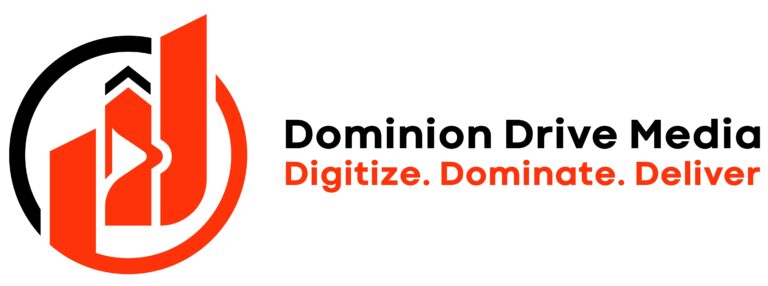HR workers encounter various industry-specific issues in today’s fast-paced digital marketing environment. As technology and customer behavior change, HR departments must adapt to recruit, retain, and grow top personnel. Let’s examine three major HR issues in digital marketing and how to overcome them.
Talent Acquisition In A Competitive Market
Digital marketers frequently have more demand than supply for qualified workers. HR professionals confront tremendous recruiting competition as organizations compete for top people to keep ahead in the digital race. Additionally the fast expansion of digital marketing channels and approaches requires employing people with specific skills worsening the talent shortage.
HR departments need proactive recruiting tactics to tackle this difficulty. Use social media industry specific job listings and professional networking events to contact applicants. Strong employer branding and demonstrating the company’s commitment to innovation and career development helps attract top digital talent.
HR teams may work with recruiting managers to identify talent requirements and conduct talent pipelining. Through university partnerships job fairs and internships or apprenticeships firms may create connections with rising talent and gain a talent acquisition edge.
Retaining Digital Marketing Talent
In a dynamic area like digital marketing HR executives need help to retain top people. Due to fast changing technology and trends workers may need to upskill or seek other employment options. Flexible work arrangements and remote options in the digital realm might challenge retention efforts.
HR must emphasize employee engagement and career development to solve this problem. Continuous training and professional development improve workers abilities and show the company’s commitment to their success. Competitive remuneration packages may keep workers including performance based bonuses and growth possibilities.
Positive work cultures encouraging cooperation, creativity and work life balance boost employee happiness and loyalty. Flexible work arrangements, wellness programs and recognition programs help create a friendly and inclusive workplace where workers feel appreciated and driven to perform well.
Adapting To Technological Disruption
Digital marketing constantly changes due to new tools, platforms and algorithms. HR managers must keep up with technological advances and their people management consequences to be competitive. HR departments must emphasize team development and upskilling to overcome this difficulty.
Investing in training programs and tools that cover evolving technologies and digital trends will help HR professionals attract, retain and grow digital marketing talent. HR departments may enhance their procedures using technology. Applicant tracking systems, data analytics tools and AIpowered recruiting platforms may boost productivity decision making and HR professionals focus on essential business activities.
Diversity And Inclusion Initiatives In Digital Marketing Teams
In digital marketing HR professionals prioritize diversity and inclusion DI activities. With the industry adapting to varied consumers and cultural sensitivities a diverse staff may provide fresh ideas and spark innovation. Digital marketers have particular hurdles when creating and sustaining diverse teams.
HR departments must actively promote an inclusive culture where people of different backgrounds feel welcomed, valued and empowered to share their ideas. This includes DI training inclusive recruiting and opportunities for marginalized groups to succeed.
HR and marketing executives may collaborate to include diversity and inclusion into the company’s identity and message. Marketing strategies reflecting various viewpoints and experiences may strengthen audience engagement and improve social impact.
HR departments may collaborate with external groups and industry associations to recruit diverse talent and assist digital marketing inclusion efforts. HR professionals can recruit top talent and encourage creativity and innovation to boost corporate performance by promoting diversity and inclusion.
Learn More : Mobile Marketing Strategies To Capture The Growing E-commerce Market
Remote Work Challenges And Opportunities
Remote employment has changed digital marketing after the COVID-19 epidemic offering HR professionals difficulties and possibilities. Remote work gives flexibility and a wider talent pool but also challenges collaboration communication and employee engagement.
HR policies and procedures must change to enable remote teams. This involves giving remote workers the necessary tools establishing clear communication routes and setting productivity and availability objectives. Remote HR practitioners must emphasize employee wellbeing.
This includes encouraging work-life balance, mental health assistance, virtual social events, and team building for remote staff. Remote employment lets HR executives recruit global talent and establish diverse teams. Remote work allows companies to access specialist skills and minimize geographical restrictions boosting digital marketing innovation and competitiveness.
Agile Talent Management Strategies
In fast-paced digital marketing, conventional personnel management may not work. HR practitioners must use agile personnel management techniques to adjust swiftly to market changes and new possibilities.
This means being more flexible with personnel acquisition, retention, and development. HR departments may use gig economy platforms, freelancing networks, and project-based employment models to hire demand specialists and grow their workforce to meet shifting workloads.
HR experts may use continuous feedback, goal setting, and skill development in agile performance management. Real-time feedback and development opportunities encourage learning and flexibility, which boosts performance and creativity.
HR departments may use agile workforce planning to promote agility, resilience, and cross-functional cooperation. By developing flexible teams with varied skill sets and views, firms may better adapt to market changes and seize digital marketing possibilities.
Data Privacy And Compliance Considerations
HR professionals worry about data protection and compliance in digital marketing. Organizations must traverse a complicated web of rules and ethical issues to preserve consumer data and comply with laws as data-driven strategies and technologies grow.
HR departments are essential to complying with GDPR and CCPA requirements regarding employee data. Implementing robust data protection rules auditing compliance and educating personnel on data privacy best practices are required.
HR may actively promote improved data privacy laws and industry norms. HR professionals may influence regulatory legislation and encourage ethical data practices that benefit digital marketing ecosystem firms and consumers by interacting with lawmakers, industry associations and advocacy groups.
Learn More : The Benefits Of Digital Marketing In The Education Sector
Managing Remote Teams Effectively
Remote labor is common in digital marketing making it difficult for HR experts to manage distributed teams. Due to communication and collaboration issues, HR departments must change their tactics and practices to keep remote personnel productive and motivated.
HR professionals must emphasize clear communication, friendly collaboration tools, and platforms to manage remote teams. Video conferencing project management and instant messaging let distant team members communicate and share information.
Conclusion
Agility, creativity, and proactive personnel management are needed to navigate digital marketing HR problems. HR experts help companies succeed in this fast paced business by acquiring and retaining personnel embracing diversity and adjusting to technological innovation. HR departments can grow in the ever changing digital marketing world by emphasizing employee engagement, remote work and new technologies like AI and automation.





